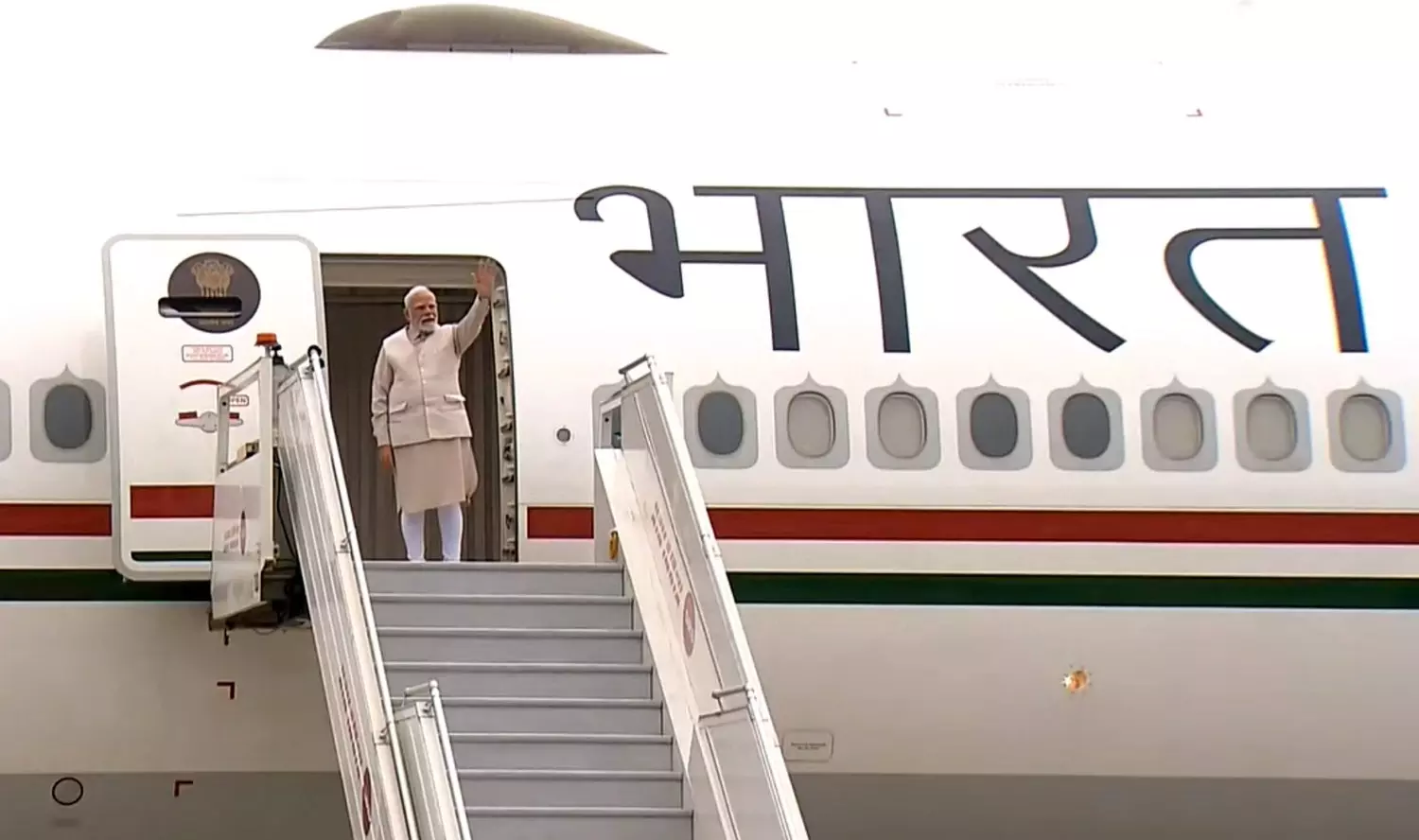
Modi’s UK-Maldives visit: Political, economic aims beyond mere optics
Amid Parliament's Monsoon Session, PM leaves for an agenda-packed foreign tour with plans to strike trade deals and recalibrate strained diplomatic ties

Prime Minister Narendra Modi has begun a four-day visit to the United Kingdom and the Maldives, and the geopolitical stakes are high. The trip aims to seal a much-anticipated Free Trade Agreement (FTA) with the UK and reset strained ties with the Maldives under President Mohamed Muizzu.
The Federal's Consulting Editor KS Dakshina Murthy explains what this visit signals—and what lies beneath the optics.
Modi is likely to sign a free trade deal with the UK during this visit. How important is this deal for both countries?
The FTA is definitely a major milestone, especially since talks have been ongoing for over three years. There was high optimism during Rishi Sunak’s tenure, but the deal didn't materialise. So, the fact that we're now on the verge of signing it is a big step forward in India-UK relations.
It will reshape trade dynamics. For instance, tariffs on electric vehicles and Scotch whisky will be slashed, and Indian textiles will get easier access to UK markets. These are specifics with tangible economic impact. So yes, this is not just symbolic—it’s a crucial achievement with long-term consequences for both economies.
In the past, Modi's UK visits included large diaspora events. But with a new government in power in the UK, do you think he’s now focusing more on serious talks than optics?
Yes, absolutely. This time, Modi is in the UK for just two days, and the spotlight is clearly on finalising the FTA. His itinerary has been kept under wraps for security reasons, especially in light of recent pro-Khalistan protests during External Affairs Minister S Jaishankar’s visit.
So this is a shift—from grand events to tight-lipped, outcome-focused diplomacy.
More importantly, this deal stands out amid global trade tensions—especially with the US threatening reciprocal tariffs. So a successful FTA here also sends a message: countries can still form constructive, mutually beneficial trade ties. Modi’s focus now seems to be getting deals done rather than crowd-pleasing performances.
Modi is also visiting the Maldives for their Independence Day, despite recent strains in ties. Is this just symbolic or a sign of a real reset? What does India hope to gain?
This visit to the Maldives is far from symbolic—it’s politically significant. Ties with the Maldives hit a low when President Mohamed Muizzu, who came to power with an ‘India Out’ campaign, demanded Indian military personnel leave the country. That actually happened.
At the same time, India signalled it could promote Lakshadweep as an alternative tourism destination. Indian tourist cancellations hurt the Maldivian economy badly. Slowly, Maldives realised they can’t afford to alienate India. While they sought closer ties with China, debt concerns have surfaced there too.
So, now, the Maldives is pivoting to a more balanced diplomatic stance—neither antagonising India nor ignoring China. For India, this reset is crucial, not just strategically but also because of infrastructure and development partnerships already in place.
Modi being the guest of honour on Maldives’ Independence Day marks a full-circle moment—from hostility to renewed warmth.
The content above has been transcribed from video using a fine-tuned AI model. To ensure accuracy, quality, and editorial integrity, we employ a Human-In-The-Loop (HITL) process. While AI assists in creating the initial draft, our experienced editorial team carefully reviews, edits, and refines the content before publication. At The Federal, we combine the efficiency of AI with the expertise of human editors to deliver reliable and insightful journalism.

